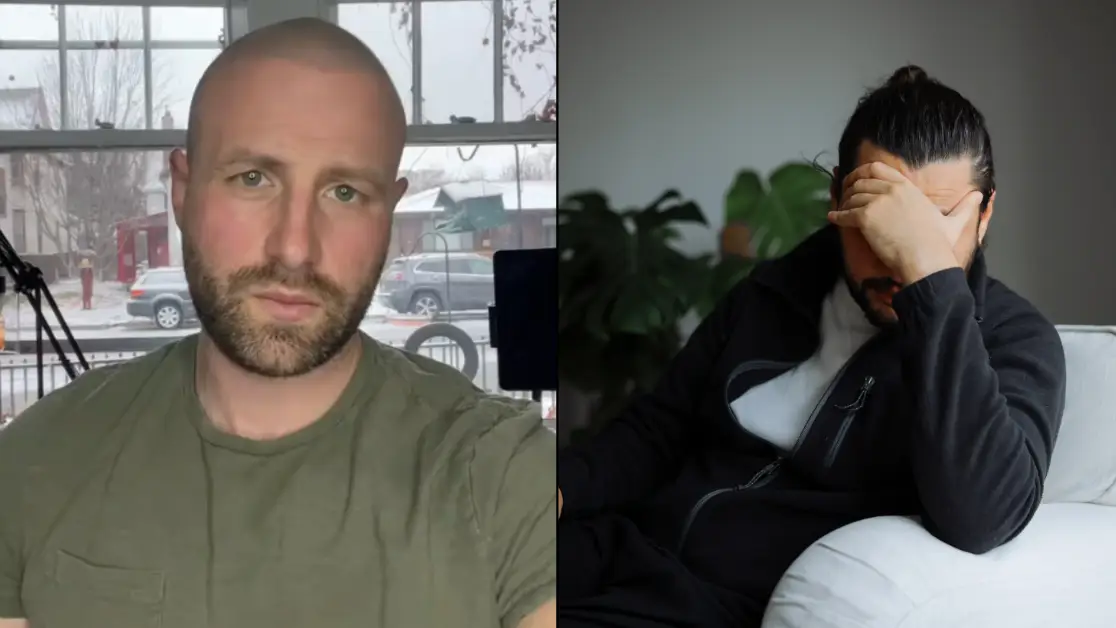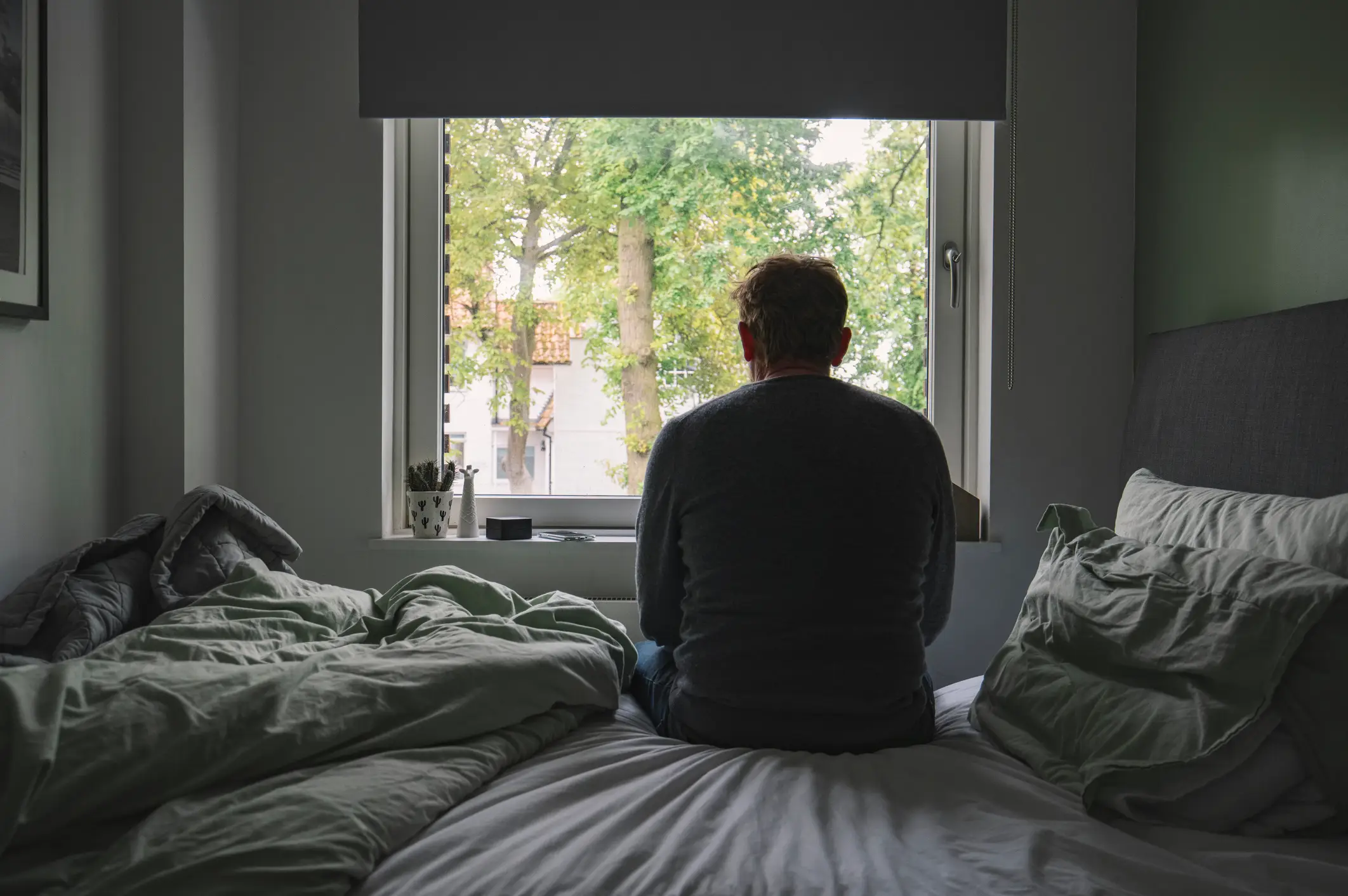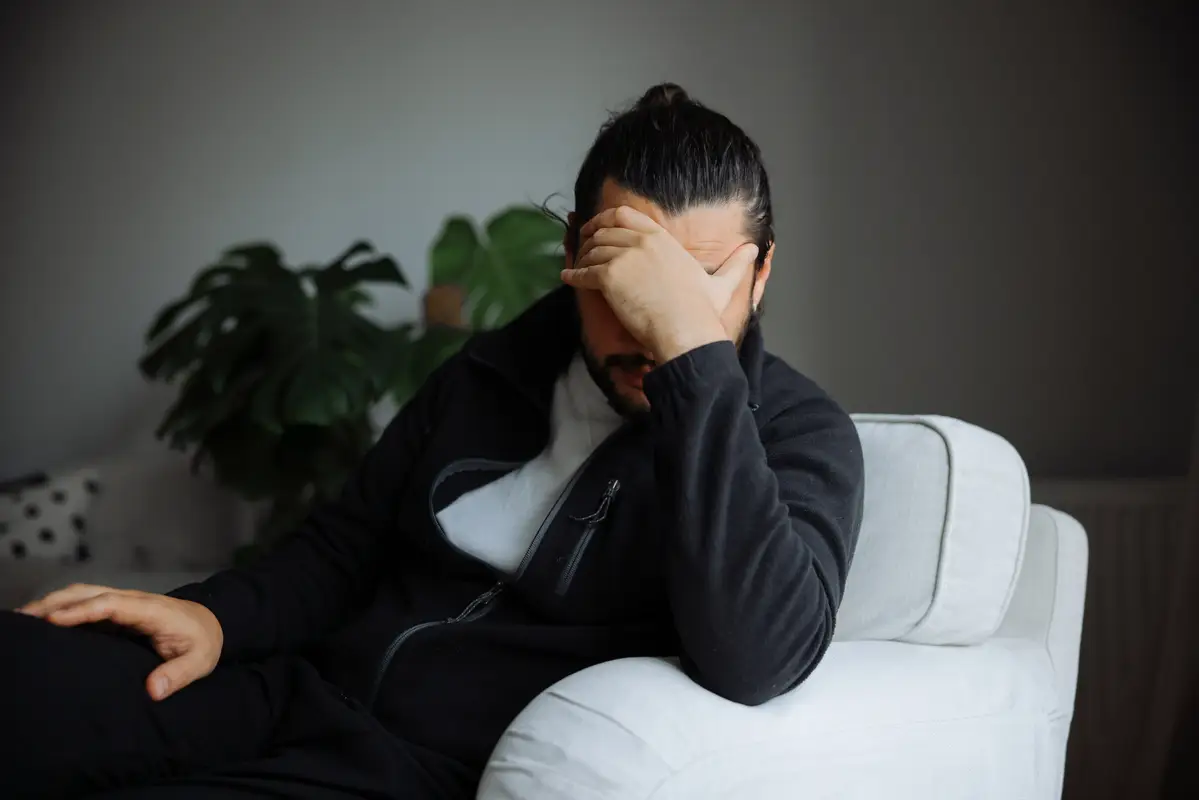
A therapist has revealed the signs he looks out for when diagnosing borderline personality disorder (BPD) in men which many people mistake for 'normal' behaviour.
US mental health and addiction specialist Evan, better known online as Evan the Counsellor, explained that there is a degree of disparity between genders when it comes to identifying the condition.
He reckons that the world still has a 'traditional view' of BPD, leading to the majority of male suffers not getting 'diagnosed and treated fast enough'.
Evan believes it's because of the stigma surrounding the personality disorder, as people still living in the Stone Age often see it as being 'feminine because it involves emotions'.
Advert
'Women are diagnosed at a three to one ratio to men, however, it's widely considered to be closer to the same, because in men it manifests in more subtle and different ways," he told his TikTok followers in a video.

The licensed clinical therapist has built up a large army of supporters since he began 'sharing educational and entertaining content' on his platforms, such as how you can spot the signs of alcoholism brewing.
And in this clip which he originally posted back in December last year, he decided to educate people on BPD.
The NHS explains that it is a 'disorder of mood and how a person interacts with others', causing a person to think, perceive, feel and relate a lot differently to others.
Evan explained the traits which he uses as a benchmark when diagnosing BPD in his male patients.
"A personality disorder is defined as a pervasive pattern of extreme behaviour that's problematic and consequential in someone's life," he began.
Evan continued: "The first behaviour I look for is emotional reactivity and this is a key feature of BPD in general. However, for men, it's often a more shallow expression - often irritability, or even explosive anger.
"But this is seen as normal behaviour for men, so it goes undetected."

However, he warned that this only ends up with them having 'extreme' outbursts which result in a 'ton of consequences'.
The second sign to look out for is 'relationship volatility', and although Evan admits this is a quite common issue, it can present itself in other ways when it comes to men who have undiagnosed BPD.
"It often comes in the form of jealousy or even paranoia," the expert said. "These individuals often have a disorganised attachment, which is pushing for closeness but also pulling out of fear, which can be quite chaotic.
"It leads to volatility in relationships and sometimes it can lead to a history of domestic disputes."
The third and 'most important' pointer which can suggest a patient might have BPD is that they display a 'chronic pattern of behaviours' as well as engaging in 'things that are harmful to themselves'.
Evan continued: "This happens in women as well, it's a key feature, however men are much more inclined to hide it. They also participate in more high risk behaviours that could be dangerous as well."
As a result of this, he reckons that men with BPD are more likely to 'utilise the health care system and take up a lot of resources' due to their actions which can result in them being injured.
"Also, men are much more likely to engage in preventative actions for their mental health and physical health, leading to more disorder and illness," he added.
Sharing his fifth and final sign, Evan explained that men with untreated BPD are at a higher risk of exhibiting violent behaviours and being incarcerated.
"This is thought to be because of their difficulty controlling anger, but also, folks with BPD have higher rates of substance abuse, including alcohol use, which leads to more violent behaviours," he said.
The counsellor reassured viewers that therapy - which teaches coping skills, mindfulness and interpersonal effective skills - can turn patients lives around and help them learn to live with the personality disorder.
If you're experiencing distressing thoughts and feelings, the Campaign Against Living Miserably (CALM) is there to support you. They're open from 5pm–midnight, 365 days a year. Their national number is 0800 58 58 58 and they also have a webchat service if you're not comfortable talking on the phone.
Topics: TikTok, Social Media, Mental Health, Health